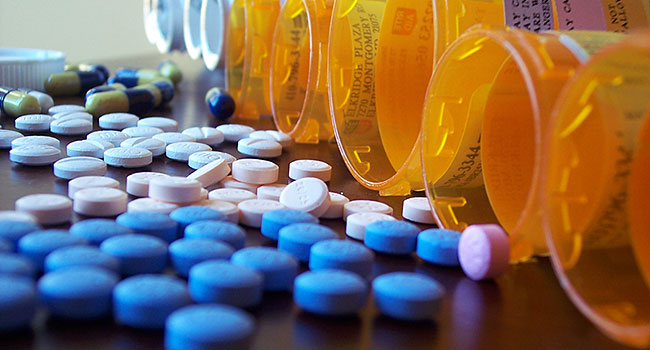Potential Drug Therapy for Liver Disease
May 19, 2020 by Iris Dawn TabangcoraWith liver transplant as the only currently available treatment, millions of people worldwide are left to struggle with alcohol-related liver disease (ALD) and its deadly consequences. However, hope springs for potential new treatments as scientists discover key molecular stepstones in ALD.
Researchers from Massachusetts General Hospital (MGH) have uncovered key molecular players in the pathophysiology of ALD which can be targets for the development of specific therapies. This was achieved through successfully combining RNA sequence analysis of patient liver samples with mouse studies.

In this undertaking, the uncovered potential molecular targets for drug development are cytoplasmic sensor cyclic guanosine monophosphate-adenosine monophosphate (AMP) synthase (cGAS) and connexin 32 (Cx32).
While it is known that liver cell death in ALD is caused by IFN regulatory factor (IRF3), it is not known how alcohol activates this pathway. It also causes a strong inflammatory response that affects cell functions ultimately leading to liver failure.
The number of patients with ALD is constantly growing, and there is a dire need for alternative treatments. The problem is being compounded by a lack of understanding as to how ALD attacks the liver regardless of whether the patient is still drinking alcohol or not.
Liver cells from patients with a wide range of severity of ALD were analyzed using RNA sequences leading to the discovery that there is a direct relationship between the degree of the disease and the level of cGAS expression. Alcohol-fed mice were found to have higher expression of the cGAS-IrF3 pathway while those that were genetically designed to have lower levels of cGAS and IRF3 had significantly lower risk for ALD.
The research team found out that cGAS activates IRF3 pathway in liver cells as well as the neighboring cells. Cx32 paves the way for drug therapy as a possible new drug treatment as is a key regulator IRF3 activation. This study just provided an evidence-based target for possible drug therapy for ALD.
“It is very encouraging to see that we now have evidence-based targets for drug development for ALD,” says Dr. Jay Luther, Director of the Mass General Alcohol Liver Center.
Learn more at
MASSGENERAL.ORG
SCIENCEDAILY.COM
About Liver Disease
Linerixibat's Therapeutic Potential to ease Itching due to Chronic Liver Disease
Umbilical Cord Blood Stem Cell Transplantation in Decompensated Liver Cirrhosis
Can pomegranate Extract Improve Liver Health in Non-Alcoholic Fatty Liver Disease?
Diet High in Protein and Unsaturated Fatty Acids Benefits Liver Health in Older Adults
Hybrid Training System Shows Promise for Reducing Liver Stiffness in NAFLD Patients
Clinical Trial Investigates the Effect of Tucatinib in Patients with Liver Disease
Can Curcumin Decrease Liver Fat Content in Obese People?
Improving Liver Health with a Low Free Sugar Diet
New Drug Shows Efficacy in Slowing Down Fatty Liver Disease
Machine Mimicking Human Body can Preserve Donor Livers for a Week
MASSGENERAL.ORG
SCIENCEDAILY.COM
About Liver Disease
Linerixibat's Therapeutic Potential to ease Itching due to Chronic Liver Disease
Umbilical Cord Blood Stem Cell Transplantation in Decompensated Liver Cirrhosis
Can pomegranate Extract Improve Liver Health in Non-Alcoholic Fatty Liver Disease?
Diet High in Protein and Unsaturated Fatty Acids Benefits Liver Health in Older Adults
Hybrid Training System Shows Promise for Reducing Liver Stiffness in NAFLD Patients
Clinical Trial Investigates the Effect of Tucatinib in Patients with Liver Disease
Can Curcumin Decrease Liver Fat Content in Obese People?
Improving Liver Health with a Low Free Sugar Diet
New Drug Shows Efficacy in Slowing Down Fatty Liver Disease
Machine Mimicking Human Body can Preserve Donor Livers for a Week
Next »
Without participants there can be no clinical trials.
Without clinical trials there will be no new treatments.
Signup and be matched to trials near you
This free service will notify you of current and future clinical trial matches.
Without clinical trials there will be no new treatments.
Signup and be matched to trials near you
This free service will notify you of current and future clinical trial matches.
